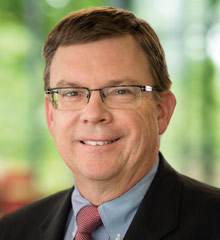Commentary on Romans 13:11-14
The readings for the first and second Sundays in Advent are taken from the later chapters of Paul’s letter to the Romans.
In these chapters, Paul is describing the characteristics of a Christian life. This is most appropriate as we enter what is classically a more penitential season, a season of inward reflection and preparation for an advent, a coming.
These chapters deal with what we might call Paul’s ethic though it is an ethic that springs forth from the work of the Holy Spirit (and not a series of rules or codes). Perhaps, the word “holy” better describes these characteristics than “ethic” as “holy” can only come from God (a gift of the Holy Spirit) whereas an ethic is something we can create, devise, and work at.
The Ten Commandments are cited, but isn’t this an ethical code? Not really when one considers the manner in which Paul deals with them (no different, by the way, from the way Jesus did). These commandments are all summed up in the word, “Love your neighbor as yourself.” Obviously not a very simple summation for it is a much easier thing to keep a checklist (No, I haven’t killed anyone; No, I haven’t stolen; No, I haven’t committed adultery; Yes, I keep the Sabbath; etc.) than it is to love the neighbor as oneself.
What do we mean by love for oneself? It means that we always seek what is best for us. We seek what profits us, what is good and helpful for us. Now, here is the commandment: to seek the good of the neighbor, to love the neighbor so as to seek the profit, good and well-being of the neighbor. This endeavor goes beyond merely keeping a checklist or following a rule of conduct. It means engaging oneself for the neighbor and the neighbor’s best interest. And the neighbor (as we know from the parable of the Good Samaritan) isn’t the neighbor we chose (the person who looks like we look or, on the whole, isn’t too demanding). The neighbor is always the other person given to us, the one who crosses our path whether we like it or not, the one whom we might not usually associate with or even try to avoid! The neighbor is always an unexpected appearance in our midst, in the midst of our lives.
The neighbor, understood in this way, is Christ. And what are we waiting for? Where lies our hope? The return of Christ? The second coming? Christ’s advent? (Not getting “left behind”!?) Considering the summation of the law in terms of “love of neighbor,” coupled with the Gospel text for this First Sunday of Advent, we come to realize that perhaps the one whose return comes unexpectedly is precisely the neighbor who encounters us in the street. Perhaps Christ’s second coming is this continual return of Christ in and through the neighbor. Then our Advent preparations have little to do with preparing ourselves for a culturally defined Christmas celebration but rather truly for a celebration of Christ’s incarnation as body, in the body, as the body of my neighbor — God in the flesh.
It is time now that we awake from sleep, Paul admonishes. There are many ways we can understand sleep in this context. It can be the sleep of death, the death that characterizes a life without the Holy Spirit. But, Paul is addressing the Christian community in Rome. He is addressing baptized Christians, Christians who live in the Spirit. It would seem that this sleep is a spiritual sleep. The gift of the Holy Spirit has been received but it has fallen asleep. Simply because we are baptized, simply because we have this privilege, does not mean that we can take it easy.
Quite the contrary, now the work of the Holy Spirit begins, making us holy, molding us into conformity with Jesus Christ throughout life. Now, the real adventure begins! The Holy Spirit molds us through practices of the faith, like daily prayer, like confession, like the celebration of Holy Communion, like love of the neighbor — all of these, and many more, are the armors of light. In all of these activities, it is not “us” (you/me) doing something that makes me a better person but it is the Holy Spirit working in us, making us holy, conforming us (individually and as a community) to Jesus Christ. We are invited to wake up to this radical work of the Holy Spirit in our midst, a work that takes us to many unexpected places and many unexpected encounters.
All of this activity is framed, by Paul, as a baptismal activity. “Put on the Lord Jesus Christ.” It is a call to remember our baptism. We are clothed in Jesus Christ. At our baptism, we were clothed in the robe of forgiveness. It is this gift of forgiveness, this gift of God’s radical love that carries us beyond our own nights, through and beyond our own desires and flesh to live for the neighbor. The Christian life is a daily practice, a continual exercise, of our baptism until the day we die. Baptism is a continual beginning. It is, yes, a death, an ending but then it engages us in a wakefulness that continues our whole life long.
We live in hope, an active hope, where the unexpected advent is not something fearful but joyous because it is from God. The vision of Isaiah is no longer just a far-off dream (“they shall beat their weapons into plowshares and their spears into pruning hooks”) but is something realized already here, in this Christian community, as we “love” our neighbor.

November 28, 2010